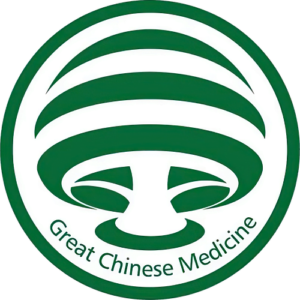引言
你有沒有注意過,同樣是冷凍食品,有時候口感細緻,有時卻像冰沙般粗糙?很多人直覺以為只是冷凍時間太久,但真正影響口感的關鍵,往往是冰晶的大小。當冰晶在冷凍過程中逐漸長大,就像冰塊撐開容器一樣,食物的組織結構也會被破壞。於是,科學家開始關注一種能控制冰晶生長的分子——抗凍蛋白。
你可能以為「抗凍能力」只存在於極地魚類或昆蟲,但近年的研究把視線轉向另一個來源:植物。研究發現,一些植物產生的抗凍蛋白能附著在冰晶表面,阻止冰晶繼續長大,這個現象被稱為冰晶再結晶抑制(Ice Recrystallization Inhibition, IRI)。更有意思的是,部分研究指出某些植物來源抗凍蛋白在抑制冰晶再結晶方面,甚至可能比某些動物來源蛋白更有效(註1)。這也讓人重新思考:像小麥這樣常見的作物,或許不只是一種食物來源,它背後隱藏的耐寒機制,可能正為冷凍科技與食品品質研究提供新的線索。
參考文獻:
註1. Gruneberg AK, et al. (2021). Ice recrystallization inhibition activity varies with ice-binding protein type and does not correlate with thermal hysteresis. Cryobiology, 99, 28–39. DOI:10.1016/j.cryobiol.2021.01.002.
小麥抗凍蛋白是什麼?為什麼植物也需要「抗凍」機制
你知道嗎?很多人以為只有極地魚類才有抗凍能力,其實小麥抗凍蛋白也在自然界默默扮演重要角色。所謂抗凍蛋白(Antifreeze proteins, AFPs),是一類能夠附著在冰晶表面的蛋白質,它們不會像防凍液那樣降低溫度,而是改變冰晶的生長方式。當水開始結冰時,冰晶通常會越長越大,就像冷凍庫裡的冰塊逐漸變粗一樣;但抗凍蛋白會貼在冰晶表面,阻止冰晶繼續擴張,這個現象被稱為冰晶再結晶抑制(Ice Recrystallization Inhibition, IRI)。
在一些研究中,植物來源的抗凍蛋白在低濃度時就能展現顯著的冰晶抑制能力,並幫助維持冷凍細胞的膜完整性與粒線體功能。研究人員利用流式細胞儀與統計圖表比較冷凍前後細胞的狀態,發現加入植物抗凍蛋白的冷凍培養基,細胞存活率往往更穩定(註1)。不過要提醒你,這類研究主要是在細胞或材料科學領域,並不代表日常飲食中的蛋白質就會直接產生同樣效果,因此理解小麥抗凍蛋白時,最好把它看成一種自然界提供給科學家參考的「低溫保護機制」。
為什麼小麥會產生抗凍蛋白?植物的耐寒機制是什麼
換個角度想想:如果植物不能移動,那它們遇到寒冬時要怎麼生存?其實小麥在氣溫下降時會啟動一套稱為冷馴化(cold acclimation)的調節機制。這就像廚房在準備冷凍食材前先做前處理一樣,植物會調整細胞膜脂質比例、累積可溶性糖,並開始表現抗凍蛋白與冰結合蛋白。這些蛋白質會集中在細胞外空間,當冰晶開始形成時,它們會附著在冰晶表面,限制冰晶形態,使冰晶保持細小而不持續長大。
研究者整理不同生物來源的抗凍蛋白時發現,植物、魚類與昆蟲等生物都各自演化出不同結構的抗凍蛋白,但它們的核心功能都與冰晶控制有關。部分綜述研究指出,植物抗凍蛋白在低溫環境中不僅能改變冰晶形態,也能協助植物在結冰條件下維持細胞結構穩定(註2)。然而要注意的是,植物的耐寒能力並不只依賴抗凍蛋白,還包含糖類、膜脂與多種壓力反應系統,因此在討論小麥抗凍蛋白時,應該把它視為整體耐寒機制中的一個重要組件,而不是唯一因素。

植物抗凍蛋白與動物來源抗凍蛋白有什麼差別
提到抗凍蛋白,很多人第一個想到的是極地魚類。的確,在南極或北極海域生活的魚類體內常含有抗凍蛋白,可以防止血液結冰。不過,植物抗凍蛋白與動物來源抗凍蛋白在作用方式上並不完全相同。動物來源的抗凍蛋白通常具有較強的熱滯效應(thermal hysteresis),也就是降低冰點的能力;而植物來源的抗凍蛋白則常被發現具有較強的冰晶再結晶抑制能力(IRI)。
研究比較不同來源冰結合蛋白的活性時發現,某些植物來源蛋白在抑制冰晶再結晶方面表現得相當突出,即使其熱滯效應不如動物來源蛋白強,但在控制冰晶大小方面可能更有效。換句話說,植物抗凍蛋白比較像是在「控制冰晶形狀的工程師」,而不是單純降低結冰溫度的工具(註3)。不過,這並不代表植物抗凍蛋白在所有情況下都優於動物來源蛋白,不同來源蛋白在不同環境條件下可能各有優勢,因此科學家仍持續研究各類抗凍蛋白在冷凍科技中的最佳應用方式。
抗凍蛋白為什麼能影響冷凍食品與冷凍保存技術
別小看這個自然界的小機制,它其實已經開始影響現代科技。由於抗凍蛋白能抑制冰晶長大,研究人員很早就想到把它應用在冷凍食品與冷凍保存技術中。當食品在冷凍過程中反覆經歷溫度波動時,冰晶會逐漸變大,這也是冷凍肉類變乾、冰淇淋口感變粗的原因之一。如果在冷凍系統中加入具有冰晶抑制能力的蛋白質,就可能減少冰晶成長,維持食物的質地。
近年的食品科學研究整理多種抗凍蛋白來源與應用時發現,這些蛋白質能延緩冰晶增長並改善冷凍食品品質,例如在肉製品、麵糰或乳製品中都曾被測試。相關研究通常透過差示掃描量熱分析(DSC)或顯微影像比較冰晶形態,並以表格方式整理不同來源抗凍蛋白的作用效果(註4)。因此,當我們討論小麥抗凍蛋白時,不僅是在談植物耐寒,也是在理解一種可能改變冷凍食品與生物保存技術的自然機制。

結論:從一粒小麥,看見自然的低溫智慧
如果說冷凍科技是人類試圖掌握低溫世界的工具,那麼小麥抗凍蛋白更像是自然早已寫好的答案。當科學家研究這些蛋白質時,發現它們並不是單純讓水不結冰,而是改變冰晶的形態與生長方式,讓細胞在低溫環境中仍能維持結構。換句話說,自然並不是用「對抗」寒冷的方式存活,而是透過精細調節,使環境與生命形成一種新的平衡。這種設計思路,正逐漸啟發冷凍食品品質控制與生物低溫保存技術,也讓人重新理解一株普通小麥背後的科學價值。
回到生活,你其實可以從兩個角度開始觀察這件事。第一,當你選擇冷凍食品時,可以留意產品是否強調冷凍品質或冰晶控制技術,因為冰晶大小往往決定了食物口感與結構的穩定。第二,當看到關於食物科技或營養的新資訊時,試著問自己一句話:「這背後的機制是什麼?」這樣的思考習慣,往往比單純記住某個健康結論更有價值。
醫家常從自然理解人體運行,《黃帝內經》有云:「人以天地之氣生,四時之法成。」生命本就隨著環境調整節律,而小麥抗凍蛋白正是這種自然調節的縮影。從植物耐寒到冷凍科技,我們看到的不只是研究成果,更是一種從自然學習的方法。
所以,下次當你看到關於冷凍食品、低溫保存或植物耐寒的討論時,不妨停下來想一想:自然是怎麼做到的?也歡迎把你的觀察或問題分享給我們——《本文將依據最新提問持續更新》。
| 比較面向 |
植物抗凍蛋白(Plant AFP / IBP) |
動物抗凍蛋白(Animal AFP) |
| 來源生物 |
常見於耐寒植物,如小麥、南極草、黑麥等 |
常見於極地魚類、昆蟲與部分微生物 |
| 主要功能 |
主要抑制冰晶再結晶(IRI),控制冰晶大小 |
主要降低冰點並防止血液或體液結冰 |
| 作用方式 |
附著在冰晶表面,限制冰晶持續長大 |
改變冰晶形成條件,降低結冰溫度 |
| 熱滯效應(Thermal Hysteresis) |
通常較弱 |
通常較強 |
| 冰晶再結晶抑制(IRI) |
多數研究顯示較強 |
依種類不同而變化 |
| 生理角色 |
幫助植物在低溫或結冰環境中維持細胞結構 |
幫助動物在極地環境避免體液結冰 |
| 研究應用 |
冷凍食品品質、植物耐寒研究、低溫保存 |
冷凍生物學、極地生物研究 |
| 食品科技應用 |
改善冷凍食品質地、減少冰晶破壞 |
應用較少,多集中於生物研究 |
| 冷凍醫學研究 |
用於細胞與組織冷凍保存研究 |
用於極端低溫生理研究 |
常見問題與回覆
問題1:小麥抗凍蛋白是什麼?
回覆:簡單說,小麥抗凍蛋白是一類能附著在冰晶表面的蛋白質,它的作用不是讓水不結冰,而是讓冰晶不要越長越大。當冰晶保持細小時,細胞或食物的結構就比較不容易被破壞。這也是為什麼科學家會關注它在冷凍食品與低溫保存技術中的潛力。從養生觀點來看,自然界很多機制都在提醒我們:與其對抗環境,不如學會調節與平衡。
問題2:小麥抗凍蛋白會不會影響人體健康?
回覆:目前多數研究集中在冷凍技術與食品品質,並沒有證據顯示日常飲食中的抗凍蛋白會對人體產生特殊生理效果。換句話說,它更像是一種自然界的物理機制,而不是營養補充成分。閱讀相關資訊時,可以先把它理解為「低溫保護策略」,而不是把它當作健康功效來看。
問題3:植物抗凍蛋白和魚類抗凍蛋白有什麼不同?
回覆:最大的差別在作用方式。魚類抗凍蛋白通常能降低體液結冰的溫度,而植物抗凍蛋白更擅長控制冰晶的形狀與大小。部分研究指出,植物來源蛋白在抑制冰晶再結晶方面表現較突出。不過不同來源蛋白在不同環境條件下可能各有優勢,因此科學界仍在持續研究。
問題4:抗凍蛋白真的能改善冷凍食品品質嗎?
回覆:在食品研究中確實觀察到這樣的可能性。當冰晶變小、變穩定時,肉類、麵糰或乳製品在解凍後的口感通常比較接近原本狀態。不過目前多數研究仍在實驗或技術開發階段,日常食品是否使用這類技術,還要看產品設計與保存條件。
問題5:為什麼科學家會研究小麥抗凍蛋白?
回覆:原因其實很單純——自然界常常比人類更早找到解決問題的方法。小麥在寒冷環境中能存活,代表它體內存在某種低溫保護機制。透過研究這些蛋白質,科學家希望理解冰晶如何被控制,進而應用在冷凍食品品質、細胞保存或生物科技領域。從傳統觀點看,自然本身就是最早的老師,我們只是慢慢學會讀懂它。
本文作者:GCM上醫預防醫學發展協會 數位編輯部
總編輯:草本上膳醫廚-黃子彥
免責聲明:本文所提供之信息僅供參考,並非醫療建議,無特定商業合作關係,亦無針對特定商品進行推薦。在進行任何飲食或健康改變前,請先咨詢專業醫師或營養師。
參考文獻:
- Short SE, Zamorano M, Aranzaez-Ríos C, et al. (2024). Novel Apoplastic Antifreeze Proteins of Deschampsia antarctica as Enhancer of Common Cell Freezing Media for Cryobanking of Genetic Resources. Biomolecules, 14(2), 174. DOI:10.3390/biom14020174
- Baskaran A, Kaari M, Venugopal G, et al. (2021). Anti Freeze Proteins (AFP): Properties, Sources and Applications – A Review. International Journal of Biological Macromolecules.
- Gruneberg AK, et al. (2021). Ice recrystallization inhibition activity varies with ice-binding protein type and does not correlate with thermal hysteresis. Cryobiology, 99, 28–39.
- Tirado-Kulieva VA, Miranda-Zamora WR, Hernández-Martínez E, et al. (2022). Effect of Antifreeze Proteins on the Freeze-Thaw Cycle of Foods: Fundamentals, Mechanisms of Action, Current Challenges and Recommendations for Future Work. Heliyon












